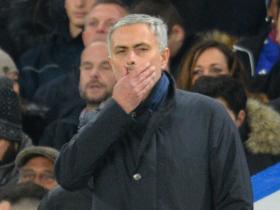The modernity runs all the way through to the way the club conducts its contractual business, actually. Marina Granovskaia, the long-time head of Abramovich’s family office, does its negotiating and, the agents will tell you, has formidable powers in that field and a fierce grasp of financial detail. No more of those Wild West days, with the club being taken to the cleaners. As the Eva Carneiro saga deepened last autumn, with Mourinho incapable of contrition, you wondered how on earth Granovskaia felt about the unreconstructed image of Chelsea it was creating.
The search for something better is bigger than Mourinho. That much was clear when, having told Petr Cech that he would be allowed to leave for the club of his choice if he gave them one more year’s service, Roman Abramovich sanctioned it being Arsenal – even though Mourinho hated that. And when, as Manchester City’s opaque accountancy work left them in default of Uefa’s financial fair play regime, Chelsea accepted its spirit – even though it meant selling André Schürrle to buy Juan Cuadrado, catastrophic though that calculation proved to be.
Amid the broader picture of where Chelsea have been trying to head, with painstaking public consultation over plans to expand their stadium, Mourinho’s attempts to adhere to the new code seemed pitifully meagre. It was noted within the four walls of the club that the manager’s relationship with Michael Emenalo, the club’s technical director, was substantially better than the one the Portuguese shared with Frank Arnesen during his first spell at the club. The two were said to be in and out of each other’s offices. Small beer. Just like the regret Mourinho privately expressed in retrospect after describing Arsène Wenger as a “specialist in failure”.
What we now know is that he was like a kid on his best behaviour, as incapable as any of us of materially changing his philosophy and personality when he is into his sixth decade. Chelsea could accept that for as long as he was annihilating the opposition in a desperately poor Premier League last season. But the trouble with the ways of Mourinho are that when the winning stops and the pretty lines – “little horses need milk” and all that – cease, there is nothing underpinning the structure except the spite and bile he perpetrates. “His method generates media conflict almost permanently and it is also a potential source of conflict within the club,” the Manchester City CEO, Ferran Soriano, has written of Mourinho. So wise.
It was the inner desire for modernity which informed some of the Chelsea chat-room conversations, after news of Mourinho’s sacking broke. Just when a wave of sentiment for him surfaced, the response went along the lines of: “Will you stop? It’s not about him.” The dignified and comparatively expansive 150-word Chelsea statement announcing the departure – listing Mourinho’s achievements, heralding him as the club’s best, thanking him for what he has brought – seemed to be cut from the same sentiment about doing things the right way. Not every club would have issued that.
So the Chelsea train rolls on. The stadium redevelopment will soon start. The accounts reveal financial self-sufficiency. The club clearly wants to represent and stand for something more than unadulterated wealth, in the way that the other English giants do. For this reason, Pep Guardiola will seem more attractive than ever. The plan beyond this season should certainly not include asking another inherently unpleasant individual to take them over the threshold of a new promised land.






